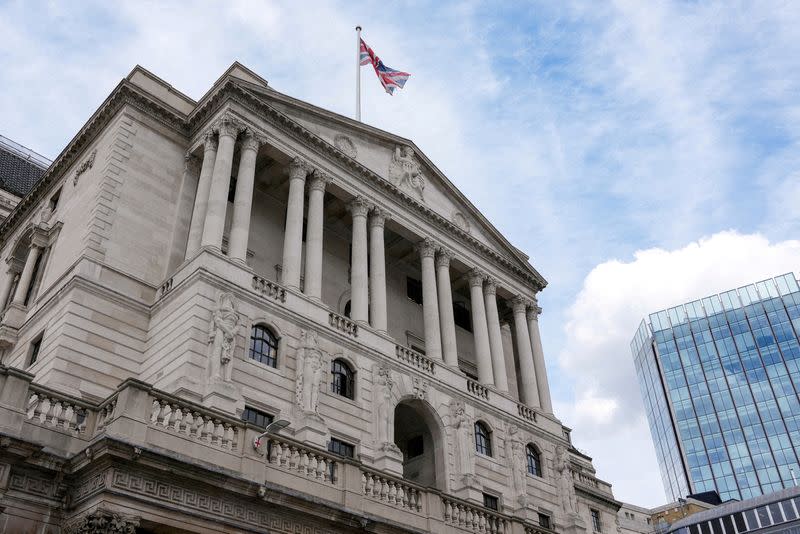Bank of England projects more than 30 billion pounds of annual QE losses

By David Milliken
LONDON (Reuters) - Britain's government may need to pay the Bank of England more than 30 billion pounds ($36 billion) next year and also in 2024 to cover losses on its quantitative easing (QE) programme, a report released by the central bank on Tuesday showed.
The BoE started buying government bonds in 2009 and the size of the QE programme peaked at 895 billion pounds in December 2021, including 20 billion pounds of corporate bonds.
Under terms agreed at the start, Britain's finance ministry receives any profits from QE - but must compensate the BoE for any losses.
Since 2009, the BoE has paid the British government 123 billion pounds, which represents the difference between the interest the BoE received on its bond holdings and the near-zero interest it paid to banks that deposited cash with the BoE.
Now the BoE is raising the interest rate it pays to banks, these flows have begun to reverse. Last month, Britain's finance ministry paid the BoE 828 million pounds to cover QE losses.
The cost is set to grow rapidly. Last week, Britain's Office for Budget Responsibility, the nation's budget watchdog, forecast that the government would need to pay the BoE 133 billion pounds up until the end of March 2028, wiping out the finance ministry's earlier profits.
The BoE updated its own projections on Tuesday in the form of a chart in a quarterly report on its asset purchases.
This showed projected annual net cash flows from Britain's Treasury to the BoE of more than 30 billion pounds in 2023 and 2024 - roughly in line with the OBR's projections, which are based on fiscal years and use different assumptions.
Looking out to 2033, the cumulative net loss on the QE programme could range from less than 50 billion pounds to almost 200 billion pounds, depending on the path of interest rates, the projections showed.
Two former BoE deputy governors have said the BoE should consider paying banks interest on only a portion of the deposits they hold at the BoE to limit losses.
BoE Governor Andrew Bailey has said the current system helps ensure rate rises are properly transmitted to the wider economy.
The BoE stopped reinvesting the proceeds of the gilts that matured from its 875 billion pounds of QE gilt holdings in February, and this month began active sales of gilts.
($1 = 0.8411 pounds)
(Reporting by David Milliken; editing by Barbara Lewis)

 Yahoo News
Yahoo News 
